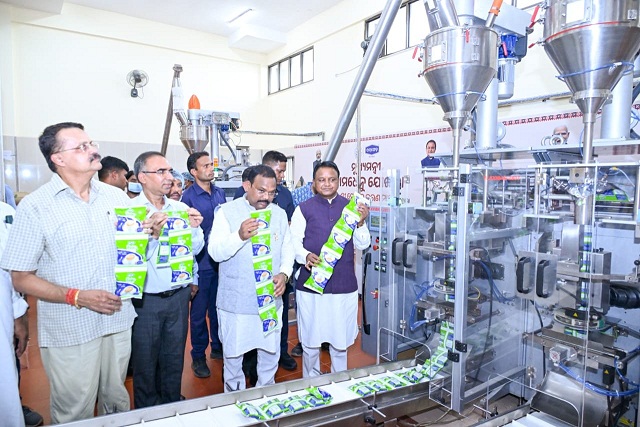Bhubaneswar:17/7/25:: So many things I want to say about this film, but let me start by saying—I’m consciously avoiding spoilers. The suspense is the soul of Bou Buttu Bhuta, and I don’t want to ruin that thrilling experience for you.
This Odia film is not just breaking records—it’s creating them. Competing with Aamir Khan’s Sitare Zameen Par, Kajol’s Maa, and even Ananta in the Odia industry, Bou Buttu Bhuta has come out as a strong contender in both emotion and box office impact.
Made on a modest ₹2 crore budget, it’s racing toward ₹12 crore—and here’s the twist: it’s a horror movie without an actual ghost. With limited budget constraints, the production team refrained from relying on elaborate ghost makeup or lighting effects. But that didn’t stop them—the eerie presence is felt, not seen, and the spine-chilling sequences are a result of brilliant scripting, smart direction, masterful cinematography, and immersive sound design.
1. A Strong Storyline with Universal Appeal
At the heart of the film lays a brilliantly written script by Mohammed Imran, who also penned the screenplay. The narrative explores the disturbed psychology of an orphan and a mother’s fierce battle to protect her son from a hostile world. The story delicately interweaves themes of trauma, love, misunderstanding, and redemption.
This film isn’t just about fear—it’s about relationships, social conflict, and inner demons. The ghost becomes a metaphor, reflecting injustice, suppressed emotions, and belief systems that often go unquestioned. Buttu Bhuta speaks a cinematic language that is both rooted and universal, leaving audiences emotionally shaken and mentally stirred.
2. Young Creative Minds Shine Behind the Scenes
Director Jagadish Mishra brings freshness and control to a complex narrative. The film is produced by Trupti Satpathy, whose faith in young talent and daring storytelling is commendable.
Cinematographer Rudra Kant Singh does a superb job creating eerie yet poetic visuals, allowing the unseen to become hauntingly present. Editor Rashmi Ranjan Dash ensures a pace that maintains suspense, though certain transitions—like Rinki’s change of heart—could be sharper.
The background score by Abhishek Panigrahi amplifies the tension, while Gourav Anand’s music adds emotional depth. Tushar Jena’s sound design is perhaps one of the most powerful elements, turning silence, whispers, and ambient sounds into a terrifying language of their own.
3. Powerful Performances from the Cast
The film showcases the exceptional acting talents of its cast: Jagannath Seth as Amari, the mysterious presence, is brilliantly restrained yet haunting. Monalisa Jena, playing the ghost informer, adds complexity to the unfolding mystery. Navin Parida (as Rinki’s grandfather), Anugulia Bunty as friend, and Robin Das as Lingaraj ground the story in emotional realism.
Aparajita Mohanty, portraying the titular Bou (mother), transitions beautifully from a nurturing figure to a fierce protector.Babushaan as Buttu/Bhuta delivers one of his finest performances yet. The courtroom-like scene where he cries, “Mu taku marini” (“I didn’t kill her”), is powerful and unforgettable.
Among the most memorable moments is when Amari silently gestures toward the village girl he admires—a gesture so lifelike and subtle that it feels completely real. It’s a scene that lingers long after the film ends.
4. Areas for Improvement
Despite its strengths, the film has a few inconsistencies: The attire of Bou in her youth and older age lacks continuity. Even the signature pentagonal bindi is inconsistent.
Amari is shown crawling, yet the ghost possessing the protagonist never mirrors this behavior—a mismatch that slightly weakens the eerie illusion.
As mentioned earlier, editing could be tighter in a few emotional transitions, particularly in portraying Rinki’s psychological shift.
One important thought—as a citizen, I appreciate the creativity. But since the film is centered on black magic and ghost possession, I urge the makers to remain conscious of the social impact. In India, people still get lynched over superstitions. Films should be mindful of the line between storytelling and reinforcing belief. Perhaps in the future, this talented team can explore psychological thrillers or real human fears without relying on superstitions—and still make us shiver!
That said, Bou Buttu Bhuta is a landmark film for Odia cinema. It’s setting new trends, winning hearts, and deserves all the applause. With such talent and vision, I wouldn’t be surprised if it surpasses Bahubali in business someday. Congratulations to the entire cast and crew! May your journey ahead be even brighter!
By Dr Nibedita Jena
(Writer, translator, and Researcher with a deep interest in Odia theatre, cinema, and storytelling.)
 Odisha news today, Latest Oriya News Bhubaneswar Online Odia news Portal
Odisha news today, Latest Oriya News Bhubaneswar Online Odia news Portal




